
Advancing arguments from his earlier book, Blacks, Medical Schools, and Society, Curtis evaluates the outcomes of affirmative action efforts over the past thirty years. He describes formidable barriers to minority access to medical-education opportunities and the resulting problems faced by minority patients in receiving medical treatment. His progress report includes a review of two thousand minority students admitted to U.S. medical schools in 1969, following them through graduation and their careers, comparing them with the careers of two thousand of their nonminority peers. These samples provide an important look at medical schools that, while heralding dramatic progress in physician education and training opportunity, indicates much room for further improvement.
A basic hurdle continues to face African Americans and other minorities who are still confined to segregated neighborhoods and inferior school systems that stifle full scholastic development. Curtis urges us as a nation to develop all our human resources through an expansion of affirmative action programs, thus improving health care for everyone.
James L. Curtis is Clinical Professor Emeritus of Psychiatry, Columbia University College of Physicians and Surgeons.
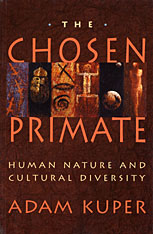

Revealing striking cross-national differences in how immigration and diversity are contended by different national governments, these authors find that how citizenship is constructed is the key variable defining the experience of Europe’s immigrant populations. Contested Citizenship provides nuanced policy recommendations and challenges the truism that multiculturalism is always good for immigrants. Even in an age of European integration and globalization, the state remains a critical actor in determining what points of view are sensible and realistic—and legitimate—in society.
Ruud Koopmans is professor of sociology at Free University, Amsterdam. Paul Statham is reader in political communications at the University of Leeds. Marco Giugni is a researcher and teacher of political science at the University of Geneva. Florence Passy is assistant professor of political science at the University of Lausanne, Switzerland.
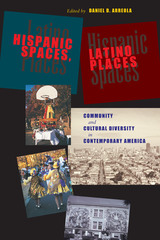
Hispanics/Latinos are the largest ethnic minority in the United States—but they are far from being a homogenous group. Mexican Americans in the Southwest have roots that extend back four centuries, while Dominicans and Salvadorans are very recent immigrants. Cuban Americans in South Florida have very different occupational achievements, employment levels, and income from immigrant Guatemalans who work in the poultry industry in Virginia. In fact, the only characteristic shared by all Hispanics/Latinos in the United States is birth or ancestry in a Spanish-speaking country.
In this book, sixteen geographers and two sociologists map the regional and cultural diversity of the Hispanic/Latino population of the United States. They report on Hispanic communities in all sections of the country, showing how factors such as people's country/culture of origin, length of time in the United States, and relations with non-Hispanic society have interacted to create a wide variety of Hispanic communities. Identifying larger trends, they also discuss the common characteristics of three types of Hispanic communities—those that have always been predominantly Hispanic, those that have become Anglo-dominated, and those in which Hispanics are just becoming a significant portion of the population.
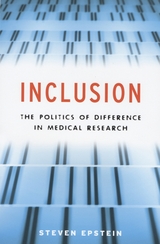
With Inclusion, Steven Epstein argues that strategies to achieve diversity in medical research mask deeper problems, ones that might require a different approach and different solutions.
Formal concern with this issue, Epstein shows, is a fairly recent phenomenon. Until the mid-1980s, scientists often studied groups of white, middle-aged men—and assumed that conclusions drawn from studying them would apply to the rest of the population. But struggles involving advocacy groups, experts, and Congress led to reforms that forced researchers to diversify the population from which they drew for clinical research. While the prominence of these inclusive practices has offered hope to traditionally underserved groups, Epstein argues that it has drawn attention away from the tremendous inequalities in health that are rooted not in biology but in society.
“Epstein’s use of theory to demonstrate how public policies in the health profession are shaped makes this book relevant for many academic disciplines. . . . Highly recommended.”—Choice
“A masterful comprehensive overview of a wide terrain.”—Troy Duster, Biosocieties


Bhikhu Parekh argues for a pluralist perspective on cultural diversity. Writing from both within the liberal tradition and outside of it as a critic, he challenges what he calls the "moral monism" of much of traditional moral philosophy, including contemporary liberalism--its tendency to assert that only one way of life or set of values is worthwhile and to dismiss the rest as misguided or false. He defends his pluralist perspective both at the level of theory and in subtle nuanced analyses of recent controversies. Thus, he offers careful and clear accounts of why cultural differences should be respected and publicly affirmed, why the separation of church and state cannot be used to justify the separation of religion and politics, and why the initial critique of Salman Rushdie (before a Fatwa threatened his life) deserved more serious attention than it received.
Rejecting naturalism, which posits that humans have a relatively fixed nature and that culture is an incidental, and "culturalism," which posits that they are socially and culturally constructed with only a minimal set of features in common, he argues for a dialogic interplay between human commonalities and cultural differences. This will allow, Parekh argues, genuinely balanced and thoughtful compromises on even the most controversial cultural issues in the new multicultural world in which we live.
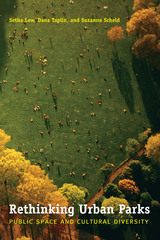
Urban parks such as New York City's Central Park provide vital public spaces where city dwellers of all races and classes can mingle safely while enjoying a variety of recreations. By coming together in these relaxed settings, different groups become comfortable with each other, thereby strengthening their communities and the democratic fabric of society. But just the opposite happens when, by design or in ignorance, parks are made inhospitable to certain groups of people.
This pathfinding book argues that cultural diversity should be a key goal in designing and maintaining urban parks. Using case studies of New York City's Prospect Park, Orchard Beach in Pelham Bay Park, and Jacob Riis Park in the Gateway National Recreation Area, as well as New York's Ellis Island Bridge Proposal and Philadelphia's Independence National Historical Park, the authors identify specific ways to promote, maintain, and manage cultural diversity in urban parks. They also uncover the factors that can limit park use, including historical interpretive materials that ignore the contributions of different ethnic groups, high entrance or access fees, park usage rules that restrict ethnic activities, and park "restorations" that focus only on historical or aesthetic values. With the wealth of data in this book, urban planners, park professionals, and all concerned citizens will have the tools to create and maintain public parks that serve the needs and interests of all the public.
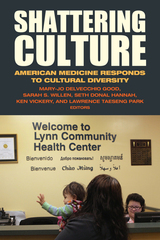
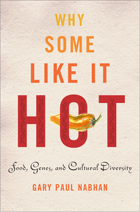
Do your ears burn whenever you eat hot chile peppers? Does your face immediately flush when you drink alcohol? Does your stomach groan if you are exposed to raw milk or green fava beans? If so, you are probably among the one-third of the world's human population that is sensitive to certain foods due to your genes' interactions with them.
Formerly misunderstood as "genetic disorders," many of these sensitivities are now considered to be adaptations that our ancestors evolved in response to the dietary choices and diseases they faced over millennia in particular landscapes. They are liabilities only when we are "out of place," on globalized diets depleted of certain chemicals that triggered adaptive responses in our ancestors.
In Why Some Like It Hot, an award-winning natural historian takes us on a culinary odyssey to solve the puzzles posed by "the ghosts of evolution" hidden within every culture and its traditional cuisine. As we travel with Nabhan from Java and Bali to Crete and Sardinia, to Hawaii and Mexico, we learn how various ethnic cuisines formerly protected their traditional consumers from both infectious and nutrition-related diseases. We also bear witness to the tragic consequences of the loss of traditional foods, from adult-onset diabetes running rampant among 100 million indigenous peoples to the historic rise in heart disease among individuals of northern European descent.
In this, the most insightful and far-reaching book of his career, Nabhan offers us a view of genes, diets, ethnicity, and place that will forever change the way we understand human health and cultural diversity. This book marks the dawning of evolutionary gastronomy in a way that may save and enrich millions of lives.

READERS
Browse our collection.
PUBLISHERS
See BiblioVault's publisher services.
STUDENT SERVICES
Files for college accessibility offices.
UChicago Accessibility Resources
home | accessibility | search | about | contact us
BiblioVault ® 2001 - 2024
The University of Chicago Press









